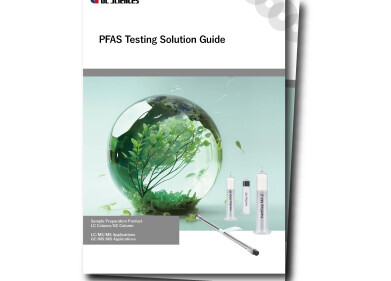PFAS Analysis
Is China moving towards stricter PFAS regulation?
Aug 31 2023
Recent research shows that drinking water in various cities across China has dangerously high levels of perfluoroalkyl and polyfluoroalkyl substances (PFASs). Originating from a study at Tsinghua University, these findings have sounded the alarm bells on the urgent need to control and reduce PFAS discharge from various industrial sources.
PFASs are synthetic chemicals that have found their way into numerous consumer products due to their resistance to heat, oil, stains, and grease. Commonly found in clothing, adhesives, food packaging, and non-stick cooking surfaces, their widespread use and environmental persistence make them a growing concern. Adverse health effects linked to PFASs include disturbed lipid metabolism, altered thyroid hormone levels, and immune system impairment.
However, the routine monitoring of PFASs in drinking water isn't universal, especially in countries like China.
A comprehensive review of 30 research studies encompassing 526 water samples from 66 Chinese cities, home to roughly 452 million inhabitants, shed light on the gravity of the issue. While North America and Europe have phased out certain PFASs, including perfluorooctanoic acid (PFOA) and perfluorooctanesulfonic acid (PFOS), China still produces them. This has increased the risk of water contamination and the associated health concerns.
Regions such as East China and the Southwest appear to be at a higher risk. For example, cities located in the Yangtze River basin like Zigong, Jiujiang, and Lianyungang have PFAS concentrations that surpass the health guidelines set by the EU and the US. Furthermore, over 40% of the sampled cities have PFAS concentrations that exceed the recommended levels for PFOA and PFOS.
Given the nature of PFASs' sources, it's evident that the excessive PFAS levels in certain cities are due to intensive industrial activities, particularly the production of fluoropolymers and a high population density in those regions.
Despite global efforts to ban hazardous substances, including PFAS, China has been reluctant to completely phase them out. As the U.N. approaches a global agreement on banning toxic chemicals linked to severe health problems, China is reportedly advocating for exemptions, particularly for the use of PFAS in firefighting foams. This stance has garnered criticism since non-fluorinated fire-fighting foams, which don't pose the same risks, are already in use in several places globally, including major airports.
China's Ministry of Ecology and Environment has initiated steps to address new pollutants with a draft plan. The New Pollutant Management Action Plan aims to more effectively manage substances harmful to human health and the environment. Among its proposed measures are strict regulations on new chemical registrations, bans and restrictions on harmful chemicals, and rigorous standards on hazardous chemical content in products.
However, considering the levels of PFASs in many Chinese cities have already exceeded both national and international advisory limits, immediate and stringent actions are imperative.
Interestingly, a study led by Mount Sinai researchers suggests that Asian Americans have the highest PFAS exposure compared to other ethnic or racial groups. This suggests that various Asian populations might have unique exposure sources, possibly related to diet or occupational hazards. This reinforces the significance of PFAS monitoring and control not only in China but across the continent.
As China grapples with the PFAS challenge, the data points towards a clear need for stronger regulations, improved monitoring, and robust treatment solutions. Given PFASs’ long-lasting nature and potential health implications, proactive measures are essential. With Asian populations seemingly at a higher risk, the continent's approach to PFAS regulation will be critical in shaping global health outcomes in the years to come.
Digital Edition
AET 27.4 November 2023
November 2023
In This Edition Business News - Global sales of unique connected personal and area gas monitors reach over $2 million - nke Group announces the acquisition of Aquaread (UK) - Valeport suppo...
View all digital editions
Events
Nov 12 2023 Louisville, KY, USA
Nov 14 2023 Jakarta, Indonesia
Nov 14 2023 Valencia, Spain
Nov 14 2023 Karachi, Pakistan
Air Quality Measurement Methods and Tecnology
Nov 14 2023 Durham, NC, USA



















